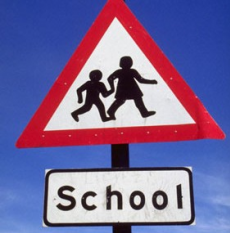
As we return to school, something that comes to mind is the question why? Why do we go to school? How did this government-implemented system reach the place it is today? And, most importantly, why is it so important? Of course, to some, the 'history of school' may allow them to figure out who to blame for, what they deem, and this 'torture'. Hopefully, however, this article will help those few, realise how vital school is, not only to their life, but to create a positive future for our country, and on a wider scale, the world. As well as recognising how very lucky they are to have such a wonderful opportunity, to learn, and to make the community we live in, a much better place.
A particularly interesting thing regarding school is that the institution developed similarly in separate cultures. In Ancient Greece, Ancient India, and Ancient China, as well as several other societies, children and adolescents were systematically passed down knowledge from their elders, despite the cultures having barely interacted. The Byzantine Empire certainly had some form of formal schooling from primary level, as army admission forms from 425AD state that each soldier 'must have some form of at least primary education.' Closer to home, in Northern Europe, universities began to form during the 12th century, a little behind the rest of the world. The main purpose of schools then, however, was to teach the Latin language to young, male nobles and churchmen (so if you think school is boring now, count your lucky stars!). Obligatory attendance to primary schools in the UK wasn't even introduced until the end of the 18th Century, but, once more, England was behind the curve. It seems, however, that we've swiftly caught up.
Schools, especially in the UK, and education as a whole, has only been improving and improving. We sit comfortably as having the 6th best schooling system in the world, and are currently hold second place in terms of Europe schooling systems. Although several East Asian countries seem to be ahead of us, it is worth noting that a significant amount of East Asian pupils come to board at British independent schools, perhaps suggesting that whilst perhaps not academically superior, we are certainly better in terms of pastoral care, and a varied curriculum. Education is, without a doubt, one of the most significant things in a functional society. When Hitler rose to power, one of his first actions was to completely alter the German school curriculum, in order to ensure that the children were lied to, and educated to his 'standards', creating a powerful, oblivious, following. Malala Yousafzai, a teenage activist, was shot in the head by the Taliban, because she campaigned for the rights of girls to be educated in Pakistan. If our enemies feel so strongly about the issue of education, it is probable that we should, too.
So, whilst school may sometimes seem a little boring, it is worth recognising that it is, at worst, a necessary evil, if not a vital way to create a rounded human being. There still are problems; the removal of coursework from national examinations, standardized testing, lack of pastoral care, early starts when studies show teens focus better in the late afternoon; the list goes on. But since schools began, we've been getting better and better, and there's no reason we shouldn't keep improving.
Image: http://www.chilterntravel.com/wp-content/uploads/2013/04/School-Sign.jpg

0 Comment:
Be the first one to comment on this article.